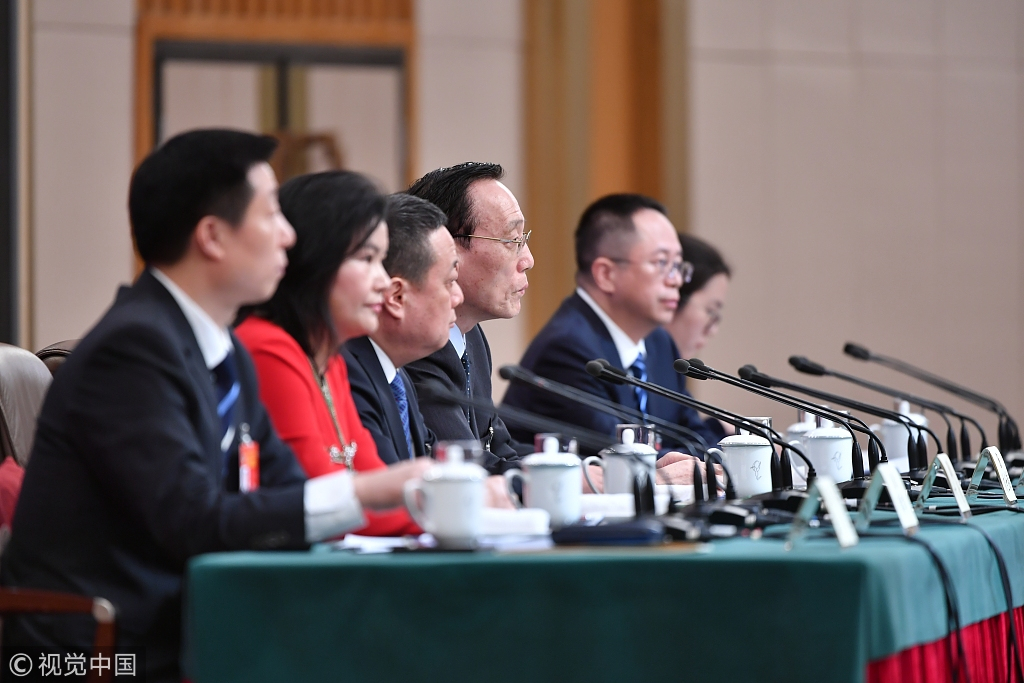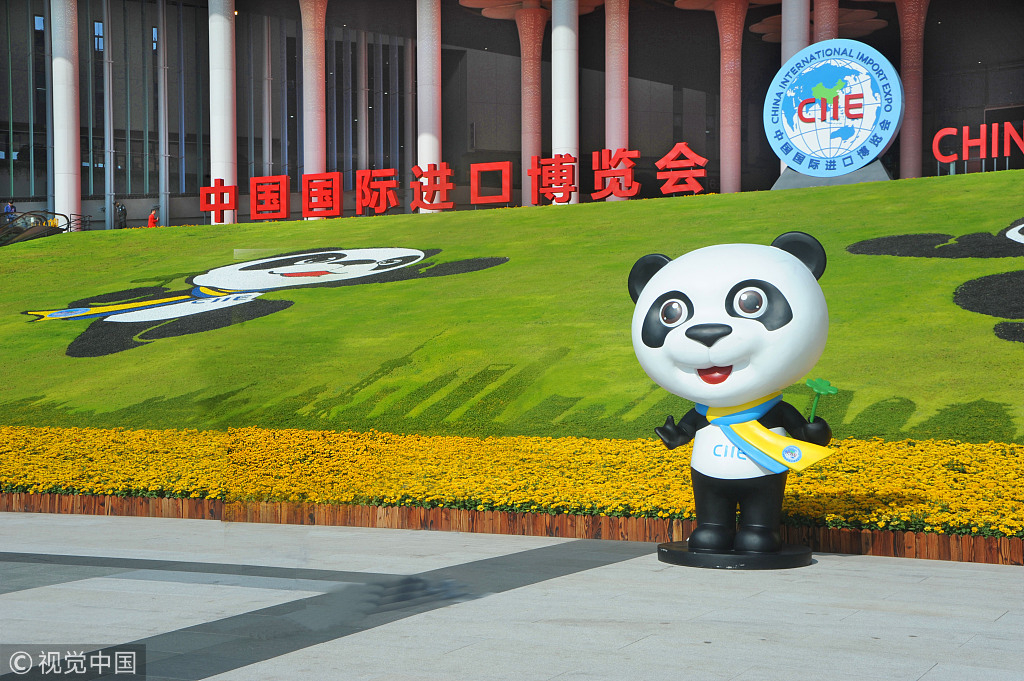
Opinion
18:18, 06-Mar-2019
What's behind China's improved business environment?
Liu Jianxi

Editor's Note: The article is based on an interview with He Weiwen, a senior research fellow at the Chongyang Institute for Financial Studies at Renmin University of China. The article reflects the expert's opinion and not necessarily the views of CGTN.
China's business environment is perhaps the hottest topic in the annual meetings of the 13th National Committee of the Chinese People's Political Consultative Conference (CPPCC) and the 13th National People's Congress (NPC). The issue has attracted a great deal of attention especially as the world's largest two economies are mired in a trade war.
China has been putting relentless efforts into improving its business environment for both private and foreign businesses. The updated draft of the foreign investment law that is due to be deliberated and voted during the two sessions is a major breakthrough.
“Except for those on negative lists, all enterprises, foreign or private, will be treated equally in the acquisition of resources, market access, license application and every aspect of the operation process,” He Weiwen, a senior research fellow at the Chongyang Institute for Financial Studies at Renmin University of China, said of the bill.
“Preferential policies for state-owned enterprises will no longer be available after the passage of the draft,” He said, stressing that this is a huge step forward, creating a friendlier business environment for both private and foreign enterprises.

The 13th CPPCC National Committee is holding a press conference on China's business environment. /VCG Photo
The 13th CPPCC National Committee is holding a press conference on China's business environment. /VCG Photo
Apart from the draft, China has instituted a nationwide policy of allowing foreign-invested enterprises to complete business filing procedures and business registration in one-go. China also piloted a business environment evaluation in 22 cities.
All these endeavors are making it more convenient for foreign investors. It is worth noting that China attracted around 135 billion U.D. dollars in foreign direct investment over the year, an increase of 3 percent, according to media reports.
The Chinese government has been introducing a slew of monetary and fiscal policies to support small- and medium-sized private enterprises as well. In this year's government work report, Chinese Premier Li Keqiang pledged to boost support for private enterprises.
“The non-public sector will receive all the encouragement, support, and guidance it needs to thrive, and vigorous efforts will be made to create an environment characterized by fair market competition and law-based institutions,” Li said during the NPC session. The rhetoric highlights China's determination to enhance its business environment.

An exterior view of China International Import Expo in Shanghai. /VCG Photo
An exterior view of China International Import Expo in Shanghai. /VCG Photo
During the two sessions, Beijing also announced a cut of 3 percentage points in value-added tax rate (VAT) for manufacturers and 1 percentage point for construction and transport companies. “Combined, the VAT cuts are equivalent to as much as 800 billion yuan and will boost corporate earnings,” Bloomberg quoted Morgan Stanley.
Financing, according to He, is one of the most serious headaches for the private sector. To address this issue, the Chinese government pledged to develop new types of bonds, improve the credit rating system for private enterprises and encourage banks to lend to them on medium and long-term bases.
China's achievements are gradually being recognized by the international community. In the World Bank's Ease of Doing Business ranking (2019), China jumped from 78th place to 46th.
Apart from stimulating the domestic market, going out is of equal importance to China's business development. China has invested heavily in countries along the Belt and Road Initiative and its mutually beneficial projects have received a warm welcome there.
But some Westerners are obstinate in accusing China of colonizing countries in less developed regions. These allegations are nonsense. “Unlike Western projects, Chinese aids have no conditions attached,” he told CGTN, adding that “the West has been used to its role as a colonizer and is always ready to interpret China's multi-win projects from the same lens.”
(If you want to contribute and have specific expertise, please contact us at opinions@cgtn.com.)

SITEMAP
Copyright © 2018 CGTN. Beijing ICP prepared NO.16065310-3
Copyright © 2018 CGTN. Beijing ICP prepared NO.16065310-3